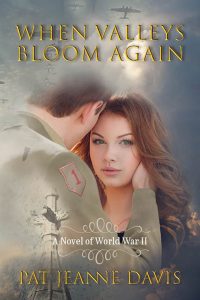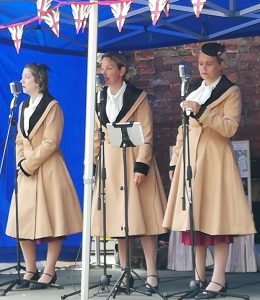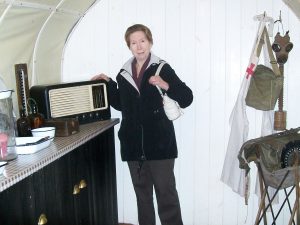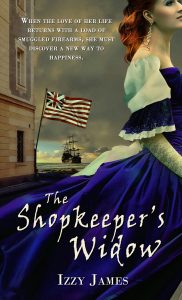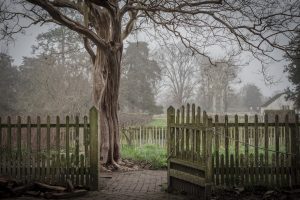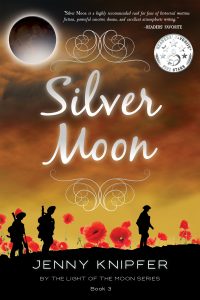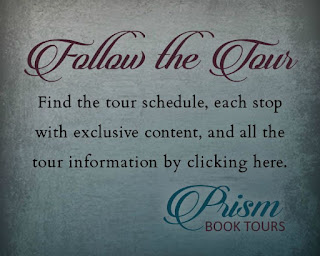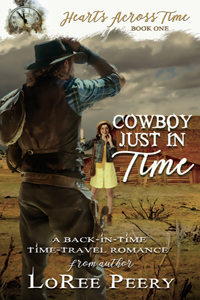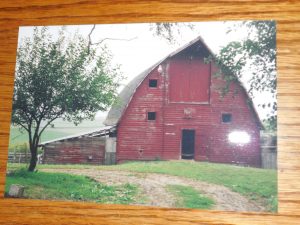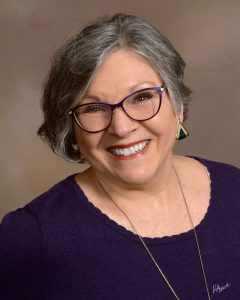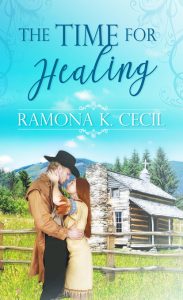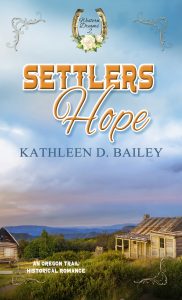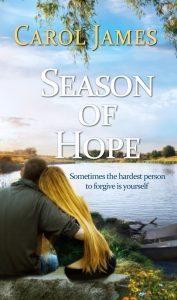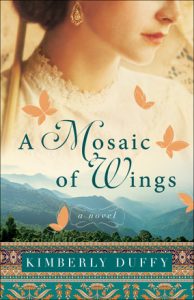As you all know, I love learning about history. I’ve been known to drag my children and husband to museums and battlefields so I can soak in as many little historical details as possible. I especially enjoy learning about historical events through the settings and events I read in historical fiction and romance, even when those events are unpleasant.
Today I have the pleasure of introducing you to a new friend, fellow Pelican Book Group author Penelope Marzec. Penny’s book, Patriot’s Courage, is the third book in her Patriot Historical Romance series.
In her guest post, she shares one of those events that at least our generation, Penny’s and mine, wasn’t taught in school. I’m a firm believer that history should not be white-washed nor should it be reinterpreted to satisfy ever changing political narratives, but unfortunately sometimes in our past, we’ve looked the other way when history didn’t shed a favorable light on the “good guys.”
Before we get to Penny’s post on one such historical event, we’re going to learn a little more about Patriot’s Courage.
Oh, and be sure to read her excerpt and enter the drawing to win an eBook copy of Patriot’s Courage. The details are in the Giveaway section at the bottom of the post.
Patriot’s Courage
 Ryan McGowan vows to kill every Indian in Ohio territory in retaliation for his brother’s death. At the Battle of Fallen Timbers, he breaks his ribs and finds a white woman sobbing over a dead warrior. When the captain assigns him to teach the woman English, he resents the task, but the woman melts his vengeance away. He begins to understand the way to peace is forgiveness. Then he learns the woman carries the child of her Indian husband in her womb.
Ryan McGowan vows to kill every Indian in Ohio territory in retaliation for his brother’s death. At the Battle of Fallen Timbers, he breaks his ribs and finds a white woman sobbing over a dead warrior. When the captain assigns him to teach the woman English, he resents the task, but the woman melts his vengeance away. He begins to understand the way to peace is forgiveness. Then he learns the woman carries the child of her Indian husband in her womb.
Màxkchulëns, a white woman adopted by the Lenape at the age of four, is confined at the fort and longs to return to her people. Though Ryan leads her to recall part of the faith her biological parents held dear, she struggles to understand it and the power of grace.
Can she rely on that grace in desperate times? And will faith protect her unborn child as well?
Patriot’s Courage is available for purchase on:
Amazon Pelican Book Group B&N Kobo Google Play Books Apple Books
A Peek into the Forgotten History Behind Patriot’s Courage
Guest Post by Penelope Marzec
In delving into the research for PATRIOT’S COURAGE, I learned a great deal more about the culture of the Native Americans, none of which was ever mentioned in history books when I was a child in elementary school. The history of the indigenous people in North America is not a happy one. Still, love can win even under the most difficult circumstances.
For my story, I focused on the Lenape, since the heroine of my story was raised by that tribe, but some things applied to other tribes as well. In general, the Native Americans believed that if someone was wronged, retribution should be given, which on the surface appears to be a good way to handle matters. It is not unlike what we do today when someone wrecks our car. Their insurance policy should pay for the damages—including the deductible.
The problem with a policy of retribution is that it can easily turn into revenge. The lands of the Native Americans were gradually swallowed up by the whites. When they fought back, the whites—despite their Christian upbringing–dealt vengeance against the Native Americans. This became a vicious cycle with no hope.
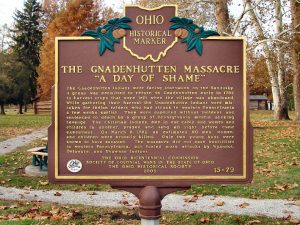 Some particular cruelties stand out and explain the spiraling hatred of the Indians towards the whites. One historical incident, which I mention in my book, is the sad story of the Gnadenhutten Massacre. Moravian missionaries, who were pacifists, converted Delaware Indians to Christianity. But during the Revolutionary War, one hundred and sixty militiamen attacked the Indians. The militiamen believed the Indians had killed and kidnapped several white Pennsylvanians, but the Christian Indians were not involved in that raid. Still the militiamen did not search for the actual perpetrators of the raid in Pennsylvania. Instead, they held a mock trial, convicted the Indians of murder, and sentenced them to death. The Indians were put into two buildings where they spent all night praying and singing hymns. In the morning, the militiamen killed them and burned the buildings. Ninety-six Indians were murdered—men, women, and children. Half of those killed were children.
Some particular cruelties stand out and explain the spiraling hatred of the Indians towards the whites. One historical incident, which I mention in my book, is the sad story of the Gnadenhutten Massacre. Moravian missionaries, who were pacifists, converted Delaware Indians to Christianity. But during the Revolutionary War, one hundred and sixty militiamen attacked the Indians. The militiamen believed the Indians had killed and kidnapped several white Pennsylvanians, but the Christian Indians were not involved in that raid. Still the militiamen did not search for the actual perpetrators of the raid in Pennsylvania. Instead, they held a mock trial, convicted the Indians of murder, and sentenced them to death. The Indians were put into two buildings where they spent all night praying and singing hymns. In the morning, the militiamen killed them and burned the buildings. Ninety-six Indians were murdered—men, women, and children. Half of those killed were children.
The result of the massacre was mounting distrust between the whites and the Indians. The news spread to all the tribes and the tragedy ended any hope of bringing whites and Native Americans together in Christian community.
George Washington warned soldiers in the Continental army not to get caught by the Indians after they killed William Crawford, an American soldier and surveyor who worked as a western land agent for George Washington. Mr. Crawford was burned at the stake by American Indians in retaliation for the Gnadenhutten massacre.
Two decades later, the Shawnee chief Tecumseh said to William Henry Harrison, “You recall the time when the Jesus Indians of the Delawares lived near the Americans, and had confidence in their promises of friendship, and thought they were secure, yet the Americans murdered all the men, women, and children, even as they prayed to Jesus?”
Even one hundred years later, Theodore Roosevelt called the massacre “a stain on frontier character that the lapse of time cannot wash away”.
In PATRIOT’S COURAGE, the hero realizes he has little hope of convincing the heroine to embrace Christianity. Yet, he tries.
Revenge did not heal the atrocities that occurred during those times. The propensity of humankind to wreak vengeance caused nothing but more hatred. I pray that in the future, love will always win.
Excerpt from Patriot’s Courage
Màxkchulëns, also known as Red Bird, stopped grinding corn and listened. Her proud husband, Running Beaver, felt confident the white men would be defeated as they had been three years ago. But now an eerie silence hovered in the air as the distant drums ceased pounding. The repeated sounds of gunfire ended. The birds resumed their songs. The river gurgled along the banks. “
It is too soon.” Her aunt frowned.
Fear wound through Red Bird. Last night’s strange dream seemed to be a warning, frightening her so badly she mentioned it to no one.
The other women quit working and gathered together on the outskirts of their village. They waited, for the calm did not bode well. Red Bird took out a smooth, round white stone from her medicine bag and rubbed it. Running Beaver gave it to her when they were both children. He was a strong, brave warrior who did not fear death. Yet, Red Bird trembled. She loved Running Beaver. When she first came to the village, he coaxed her out of her fright. His gentle, kind manner and patience eased her misery.
Sudden shouts alerted her and the other women as the young boys returned with news of the rout and the failure of their British allies to open their fort and give aid in the fight. The boys claimed many warriors lay dead on the field of battle.
Màxkchulëns, haunted by her alarming dream, started toward the battlefield. Other women followed.
Her aunt tried to drag her back. “There may still be white soldiers there. It is dangerous!”
Red Bird refused to listen. She shoved her aunt’s arm away and walked onward until she came upon the appalling site of the brief battle. Dead and dying men with ghastly wounds littered the area. Blood coated the earth. The sound of wailing women rent the air with grief. The sharp smell of gunpowder mingled with a putrid stench in the heavy, humid air. The odor turned her stomach.
Red Bird drew a cloth over her nose. Her heart thundered as she stared into the faces of dead men, hoping to find the one that mattered most to her.
The yellow hide soldiers went about the task of picking up their wounded and dying. She stayed as far away from them as she could, but the task proved difficult for huge fallen trees covered the area and men lay in between the many trunks.
After some time, she found Running Beaver. She reeled at the sight of the grievous wound in his back. His face lay in the dirt while his body pressed against a huge, felled tree. She knelt beside him and reached for his still, cold hand. Last night in her dream, he walked along the white road of stars on his journey to the village of the Great Creator, Kishelemukong.
She could not tell her husband of her fears, for he would have scoffed at her. No brave warrior would refuse to fight in a battle simply because his woman asked him to do so.
She glanced around, uneasy. In her nightmare, another warrior, Dancing Squirrel, pulled her from Running Beaver. She’d woken from her dream shaking and in a cold sweat. She never trusted Dancing Squirrel. Once, he wanted her to be his woman, but she refused him as was her right. Since that time, he sneered at her in a threatening manner whenever he saw her.
Now that Running Beaver was dead, would Dancing Squirrel ask to have her as his woman once more? Tears gathered in her eyes, but she tried to hold them back as she caressed her husband’s shoulder and sang the death song to him. Sorrow welled up and choked her words. Her shattered hopes raked her soul until it was raw.
A soldier approached. He laughed at her. She scooted back against the bark of the fallen tree. The tall man stood over her. His hulking, muscular build rivaled that of any of the strongest warriors. He muttered something, reached down, grabbed her arm, hauled her upright, and squeezed her bosom.
Red Bird screamed and struggled to get away, but his strength overwhelmed her. He pulled at her braided hair and gave a raucous laugh.
She tugged the braid out of his hand.
Another solider, carrying his bright, woolen jacket on his arm hobbled toward them. With his face creased in pain, he leaned on a sturdy branch. He spoke to Màxkchulëns’s abuser in a low tone layered with harsh severity. The abuser stopped fondling her but continued to hold her arm so tightly she thought he would break it. She screamed until her voice grew hoarse. The man leaning on the branch spat out sharp words, winced, and turned ashen. Other men hurried to drag her abuser away.
The man with the sturdy branch offered his jacket to her. She did not want it, but she assumed wearing it would mark her in some way as protected. She accepted the woolen coat.
As she donned the garment, another wave of fear and grief consumed her. She collapsed over her husband’s body and wept, well aware she remained at the mercy of the horrible soldiers. She didn’t care. Running Beaver no longer breathed and would no longer smile. He must leave her behind as he went on his long journey to Kishelemukong’s village. Mired in her misery, she wished for death to come soon. Perhaps one of the soldiers who killed Running Beaver would kill her as well.
After a while, she lay exhausted and spent from her weeping. The flow of tears ended, leaving her hollow. The rumble of a heavy wagon sounded nearby. She glanced to the side and watched as the yellow hides lifted their wounded into the back of the vehicle. The man who gave her his jacket spoke to several other soldiers. He plainly suffered from the effort of speaking but the other men scurried about in obvious obedience. She wondered if he was a chief.
Two soldiers lifted her off her feet. Red Bird did not struggle or scream this time. If they were to kill her, she would die as courageous a death as any warrior. The men placed her in the wagon beside the man who must be their chief. He drew her hand in his. She did not pull hers away. He spoke to her in a whisper, but she did not understand his language. Perhaps he was telling her how she was to die.
The other women of her tribe stood with their heads bowed as the wagon lumbered by them. None of them came to her aid, and she did not expect them to put themselves in danger. A brief swell of panic nearly consumed her, but she fought against it. She would be strong, she would be courageous, and she would soon join her husband on the white road of stars.
About Penelope
 Penelope Marzec grew up along the Jersey shore, heard stories about Captain Kidd, and dug for his buried treasure. Her adventure resulted in a bad case of poison ivy. Deciding books were better than buried treasure, she discovered romance novels and was soon hooked on happy endings. She became an early childhood educator and found her own hero in an electrical engineer who grew up in Brooklyn, played the accordion, and was immune to poison ivy. Now retired, Penelope either writes her stories or paints seascapes in oils. Sometimes she sings while her husband plays the accordion.
Penelope Marzec grew up along the Jersey shore, heard stories about Captain Kidd, and dug for his buried treasure. Her adventure resulted in a bad case of poison ivy. Deciding books were better than buried treasure, she discovered romance novels and was soon hooked on happy endings. She became an early childhood educator and found her own hero in an electrical engineer who grew up in Brooklyn, played the accordion, and was immune to poison ivy. Now retired, Penelope either writes her stories or paints seascapes in oils. Sometimes she sings while her husband plays the accordion.
Penelope writes in several subgenres of romance. You can find her online at www.penelopemarzec.com read her blog at http://penelopemarzec.blogspot.com, become a fan at www.facebook.com/penelopemarzecbooks, or follow her on Instagram at https://www.instagram.com/marzecpenelope/
Giveaway**
**This giveaway is now closed**
Congratulations to our winner, Rory Lemond!!
Penny has graciously offered to giveaway an eBook copy of Patriot’s Courage. To enter the drawing, share with us a little known historical event or detail you’ve learned about in the comments below.

